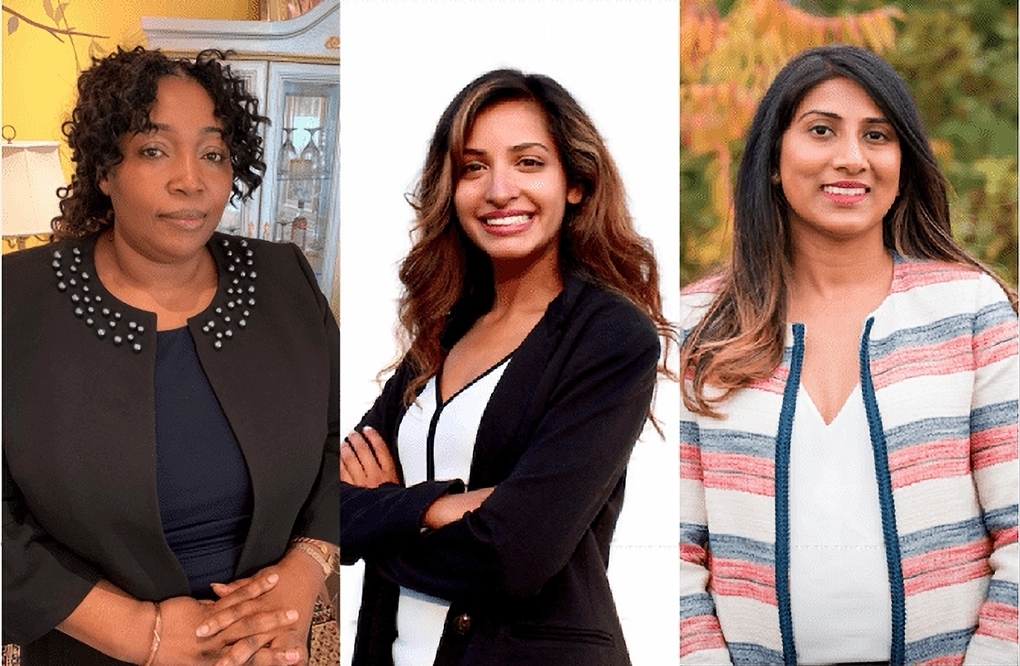With the general election in Ontario scheduled for June 2, major political parties appear to have chosen a double-barrelled strategy of nominating debutante female candidates of visible minority and immigrant backgrounds, two demographic sectors historically underrepresented in traditional politics.
The underrepresentation of immigrants and ethnoracial communities in Canadian politics on the federal level has been a concern for decades. A 2021 study by a group of Canadian researchers found that racialized and Indigenous individuals are underrepresented both as candidates and as members of the House of Commons.
Progress in terms of gender equality has been slow too: women’s representation in the House of Commons reached 30 per cent for the first time in the 2021 general election.
But come June 2, voters across Ontario will see candidates on the ballots who hope to build on the victories of women like Rechie Valdez, the first Filipina MP elected in 2021 from the Liberal Party to represent Mississauga-Streetsville; and Dolly Begum, the first Canadian of Bangladeshi origin to clinch an MPP seat in Ontario, claiming Scarborough Southwest for the New Democratic Party in 2018.
New Canadian Media caught up with some of these female candidates representing the Liberal Party and the NDP who shared their inspiring stories of advocacy work in Ontario and who are now vying for office in the province. We wanted to know what value they would bring to their minority communities if elected. We were also curious to learn about their shared values and concerns as female leaders.
It should be noted that NCM contacted Alicia Vianga, the Progressive Conservative Party candidate representing Scarborough-Guildwood, but she was not available for an interview. The Green Party had no female representatives of colour nominated for the election as of the time of writing.
Farheen Alim, NDP candidate for Etobicoke-Lakeshore
Farheem Alim is a high school teacher of Bangladeshi background. As an instructor of English as a Second Language (ESL) who is used to working with immigrant students, she says she is disheartened by the underrepresentation of minorities in the government and in the education sector, and by how that impacts students.
“Often, teachers and policy-makers struggle to understand the significance of religious customs like Friday prayers for Muslims, almost always tending to overlook the need for any accommodation for daily rituals,” she says.
Alim says she was inspired to see Dolly Begum — someone with a “similar upbringing” — become the first Canadian of Bangladeshi origin to ever hold elected office following her 2018 win.
“Her rise to power meant that our dreams were realistic and actionable,” she says.
She now hopes to do the same for other students by showing them the possibilities of success through education.
She also believes there are misconceptions about Bangladeshi and Muslim women in the West. With her win, Alim wants to add their voice to the table, help fight for their needs and bring a realistic perspective from within the community.
“With the recent desecration of religious shrines in the recent past, it is also important for me to make my community feel secure and safer,” she emphasized.
Kaniz Mouli, Liberal candidate for Oakville North-Burlington
After immigrating from Bangladesh with her parents in search of a better life in Canada, Kaniz Mouli lost no time becoming involved in politics, at first in high school and later at university, where she experienced the glaring lack of female representation first-hand.
“During my study at Lakehead University in Thunder Bay, I noticed myself to be almost the only female political activist of colour in the campus club,” Mouli recalls.
Eventually, Mouli would work for cabinet ministers at Queen’s Park, where she worked on diversity and inclusion issues while also advocating for women’s representation in politics.
“I understand the hardships of an immigrant and the quality of life all of us dream of having,” she says. “To ensure that standard, getting involved in the legislature was the key for me.”
Mouli, who is now a mom to a 15-month-old boy, says she also hopes to be able to bring the perspectives of mothers into the day-to-day functioning of the party.
As a Bangladeshi-Canadian, she also wants to act as a liaison for the Bangladeshi community and raise awareness of cultural nuances in relation to minorities in the provincial government.
Julie Lutete, Liberal candidate for Etobicoke North
Julie Lutete fled the war-torn Democratic Republic of Congo in 1997 with her one-year-old daughter. She arrived in Toronto to live in close touch with her orphaned nephew and niece, but the settlement and integration processes were far from smooth, even though, as a French speaker, she was able to communicate in one of Canada’s two official languages.
But her initial struggles, with the English language and with some cultural norms, only drove her to help others. Throughout the following years, she would offer settlement services to thousands of Black Francophone newcomers, even founding a non-profit organization to support them in their needs for the next decade.
Today, Lutete is a well-recognized Francophone community advocate, working closely with the diverse communities at the grassroots level.
“I chose to run for the elections because fighting for Francophone rights for so many years as the Chair of la Coalition des Noirs Francophones de l’Ontario (Black Francophone Umbrella organization in Ontario) is not sufficient,” she says. “I continue to see Black newcomers being harassed or racialized everyday.”
As a Black Canadian, Lutete says she has experienced systemic racism across the region, and mentions her nephew who faced racism both at school and in a foster home.
That’s why she says her goal in winning is to offer concrete public policy changes, such as decreasing social inequality for all minorities, including Black Francophone residents.
“Several Black Francophone women suffer intimate partner violence in their homes,” she says, adding that she hopes that her win might inspire these women to stand up against abuse while contributing to community-building by occupying higher positions involving more decision-making.
Like all other female candidates interviewed by NCM, she also desires to bring women’s perspectives into policy-making and governance.
Regardless of the outcome of the summer election, these three candidates promise to continue to fight for a better life not only for their constituents but also for the various communities they belong to and proudly represent.
Amrita is an NCM-CAJ Collective Member, journalist and content writer, with nearly a decade of experience in content development and journalism in three countries. She started her career as a journalist with a leading daily, The Statesman, in India. She has also led content and editorial teams for several web content management firms. Amrita served as a Communications and Content specialist for some non-profit organizations like the American Red Cross after her move to the U.S. Based out of Toronto, she continues to follow her passion by reporting on human rights violations, education, crimes, inequality and community engagement. Amrita holds a Post Graduate Diploma in Print Journalism from Chennai, India.





